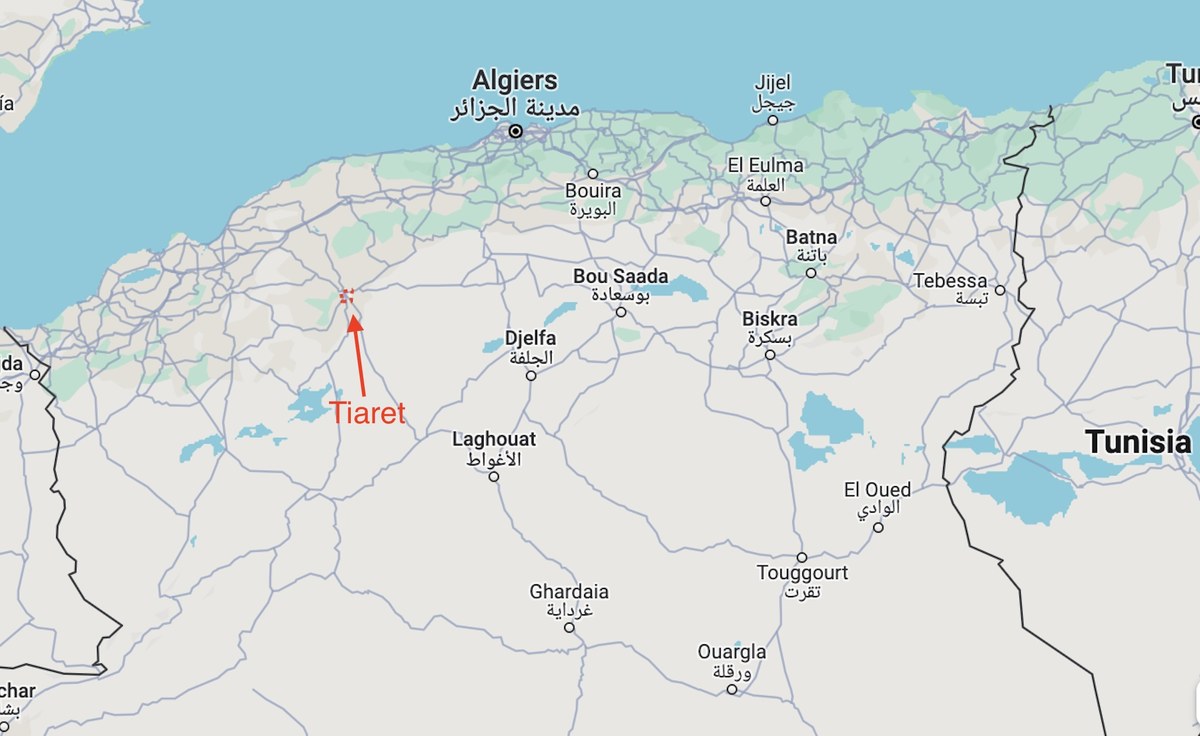ALGIERS: Protesters took to the streets for the second day Monday in Algeria’s northern Tiaret region, social media reports said, in rare demonstrations against severe shortages of drinking water.
President Abdelmadjid Tebboune had vowed to address the issue by the Eid Al-Adha holiday which began Sunday.
According to several social media accounts, demonstrations erupted and roads were blocked in Tiaret, southwest of the capital Algiers, from the start of Eid Al-Adha.
Images shared on social media showed at least two roads connecting Tiaret to the neighboring towns of Frenda and Boucheguif blocked by rocks and improvised barricades.
But neither official nor private domestic media reported on the protests.
“Your promises to the residents of Tiaret have been in vain. From the first day of Eid, many areas have been without water,” one user posted on the Algerian water company’s page.

Screenshot from Google map showing Tiaret, the site of protests in Algeria.
About 40 kilometers (25 miles) away from the city of Tiaret, in Rahouia, images circulated online showed a gathering of citizens blocking the local district chief from leaving his headquarters until he heard their concerns.
Since May, all the tributaries of the semi-desert region and its Bakhedda dam have run dry.
Protests broke out at the start of June in Tiaret, with demonstrators burning tires and blocking roads at the time, according to social media posts.
Faced with the issue in the lead-up to early elections in September, President Abdelmadjid Tebboune had called a cabinet meeting on June 2 and ordered the interior and water ministers to draw up an urgent plan to address the water shortages within 48 hours.
The following day, the two ministers traveled to Tiaret to present a plan to resolve the problem “before Eid Al-Adha.”
A system supplying water from wells connected to the water network resolved the issue in central Tiaret, but not in other parts of the region, according to online posts.
Protests have been rare since Tebboune’s election in December 2019 after his predecessor Abdelaziz Bouteflika stepped down in the wake of mass Hirak movement demonstrations against him.
Tebboune has not yet declared whether he will seek reelection but has been very visible in the media and at public events.




























